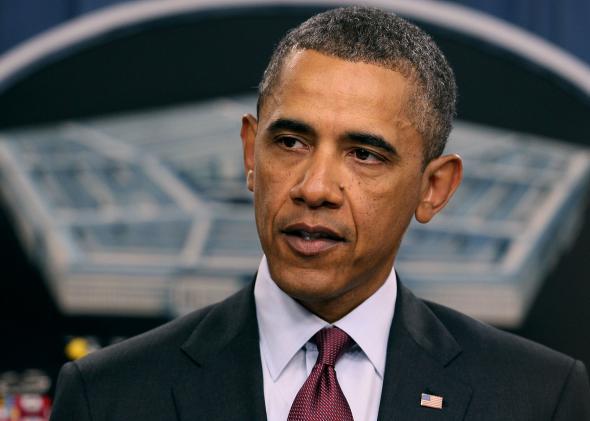Over the last few weeks, President Barack Obama has announced his intention to issue executive orders protecting federal employees from discrimination based on gender identity and forbidding federal contractors from discriminating against LGBT employees. These are worthy, wonderful plans. But they may also be unnecessary, because discrimination against LGBT employees is probably already illegal across the entire United States.
Given the controversy over these executive orders and Congress’ refusal to pass the Employment Non-Discrimination Act protecting gay and trans workers, this might be surprising. But a straightforward reading of existing employment laws reveals that it’s really common sense. Title VII of the Civil Rights Act of 1964 forbids sex discrimination, which the Supreme Court has interpreted to include irrational sex stereotyping. And both anti-gay and anti-trans discrimination, at bottom, are really nothing more than sex discrimination.
In the case of anti-trans discrimination, this fact is blindingly obvious: If you fire a trans employee for being trans, you’re blatantly discriminating against them on the basis of their sex. In the case of anti-gay discrimination, it’s a little more nuanced but equally plausible. When an employer disapproves of a gay worker’s orientation, he’s essentially berating the worker for not properly fitting into their gender role. The gay worker’s attraction to people of the same sex violates their boss’ beliefs about how men and women should act, and any discrimination that follows flows from the boss’ bigoted views of sex.
Don’t think this logic passes legal muster? Take it up with the Chai Feldblum of the Equal Employment Opportunity Commission, who pellucidly spelled out this reasoning in the New York Times. Or ask the commission itself, which has repeatedly ruled that LGBT discrimination is a form of sex discrimination forbidden by Title VII. The commission’s rulings are, admittedly, only advisory—but U.S. District Judge Colleen Kollar-Kotelly’s rulings are binding law, and the judge permitted a lawsuit based on this logic to move forward earlier this year.
Considering the solid framework of this interpretation, you’d think countless gay and trans workers would be rushing forward to bring lawsuits against discriminatory employers. There are a few reasons that hasn’t happened. First, this theory was only recently developed and approved by the EEOC, and it isn’t yet common knowledge. Second, the endless political football over ENDA tends to give the understandable impression that gay and trans employers aren’t yet protected by law. Third, a solid test case hasn’t yet made its way to the Supreme Court, where the justices could put their seal of judicial approval on the theory espoused by the EEOC.
But the pieces are starting to move into place, and I hope Obama’s executive orders don’t distract from what should be the gay community’s first big post-marriage-equality legal battle. Title VII protection for LGBT employees is really the best way to shield gay and trans workers from discrimination: Lawsuits can build off existing sex discrimination case law, and protections won’t be undermined by cavernous religious exemptions. The only way to turn this legal theory into a reality is for LGBT workers to start suing their discriminatory bosses. It doesn’t matter whether you live in Texas or Vermont: If your boss calls you a fag or a tranny, march down to federal court and sue him under Title VII. Your case might just open the doors to workplace equality for millions of LGBT Americans.
